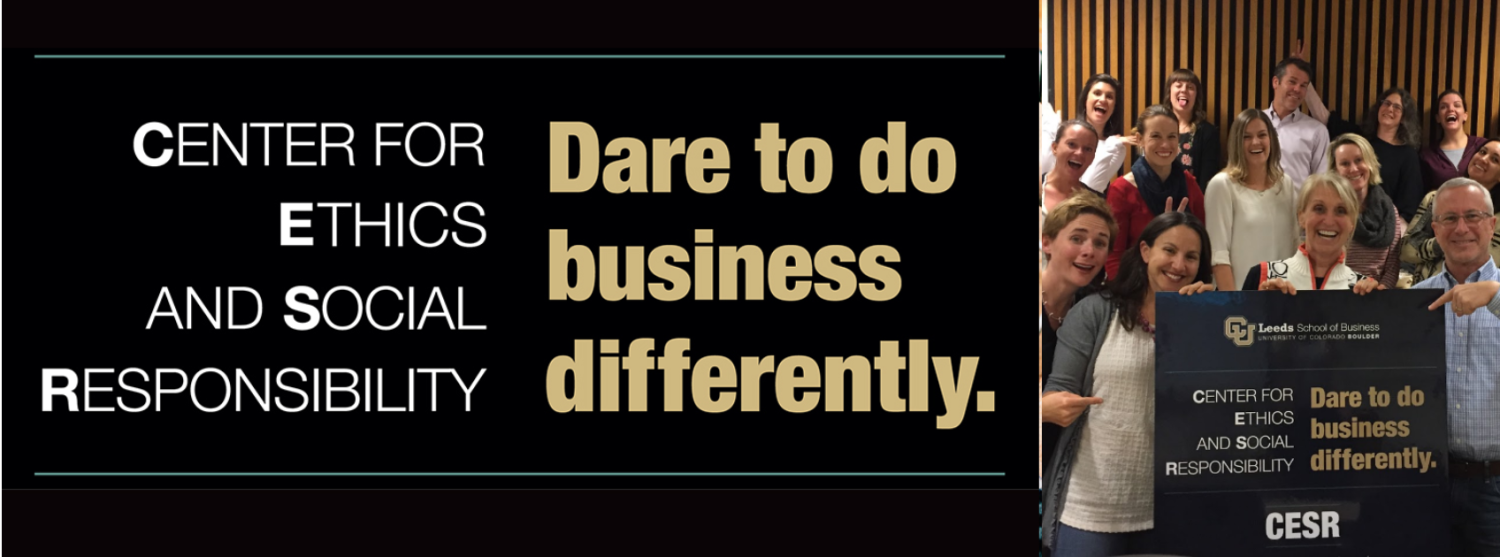Understanding Corporate Social Responsibility

What is CSR?
Corporate Social Responsibility (CSR) refers to a company’s efforts to increase accountability, responsibility and transparency in areas that are most relevant to their strategy and business. It involves considering everyone who is impacted by the business’s operations, from customers to the environment and employees to the global community. According to Pete Dignan, instructor for CESR’s Certificate in Corporate Social Responsibility program, the purpose of CSR is to approach business in a way that is “equitable and fair for all stakeholders, not just shareholders.” Dignan also emphasises the need to consider the environment as a stakeholder since it is neglected by the narrow goal of maximizing shareholder wealth.
Consumers and employees have become the driving force behind the CSR movement, putting pressure on companies to be conscious of their impact on the triple bottom line. In 2015, Nielsen found that 66% of global respondents and 72% of millennials are willing to pay more for products that come from companies dedicated to creating positive social and environmental impacts. Additionally, in 2017, Cone found that 63% of Americans are hopeful that business will drive economic and social change, even in the absence of government regulation.
CCSR Program
CESR and B:CIVIC have partnered to offer the Certificate in Corporate Social Responsibility (CCSR), a program designed for people seeking to further their skills or guide their companies in the practice of socially responsible business. This course teaches various topics including business purpose in society, employee giving and engagement programs, environmental sustainability, corporate philanthropy and partnerships, governance, human resources, and culture.
With the completion of the course, Dignan hopes his students come away with “practical tools including vocabulary, models, and frameworks to help them engage in this work.” The field of CSR is complex, and this course provides the basis for practical knowledge that can be applied in the business world.
Careers in CSR
Careers in CSR vary widely depending on the company and industry; some companies such as KPMG have entire teams dedicated to CSR while others have no identified CSR positions. Currently, there aren’t a lot of official CSR titles, but there are many ways to incorporate CSR into any role. No CSR program could be effective without the support of colleagues from departments across the company. Every department, from HR to Procurement, has opportunities to help the company make a more positive impact. Dignan encourages his students to initiate change from their current positions by establishing a CSR program within their company on an issue that’s relevant to the organization’s brand and strategy.
“For CSR to be successful, it’s important to identify your materiality. You have to ask, ‘where can we have a meaningful impact on Sustainable Development Goals (SDGs)?’ and then make sure not to take on too much too soon; initially, a narrow focus is more constructive,” Dignan says. Programs can take many forms, including advocating for paid time off for volunteering, pioneering a program to take back and recycle your products when they reach end-of-life, or organizing co-workers to mentor students from marginalized communities, imparting skills and knowledge that’s relevant to your field.
While pursuing a career in CSR, whether it’s your official role or you’re trying to develop a new program in your company, it’s important to remember to be creative and look for areas where you can make the most impact.
Want to deepen your knowledge in CSR? Visit the Certificate in Corporate Social Responsibility web page to learn more about this program.







